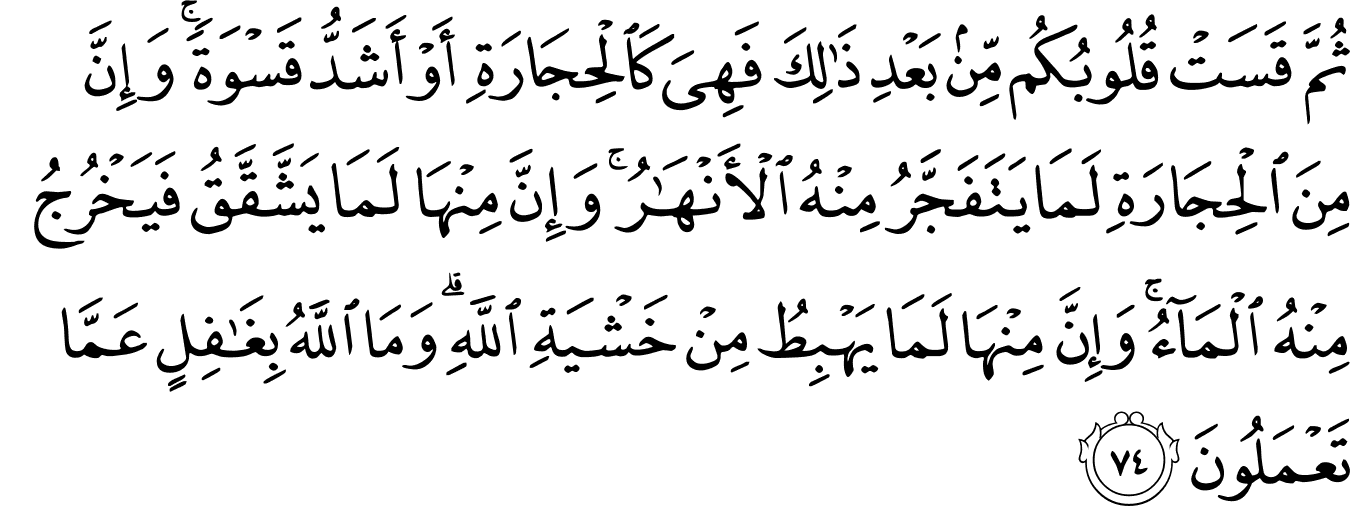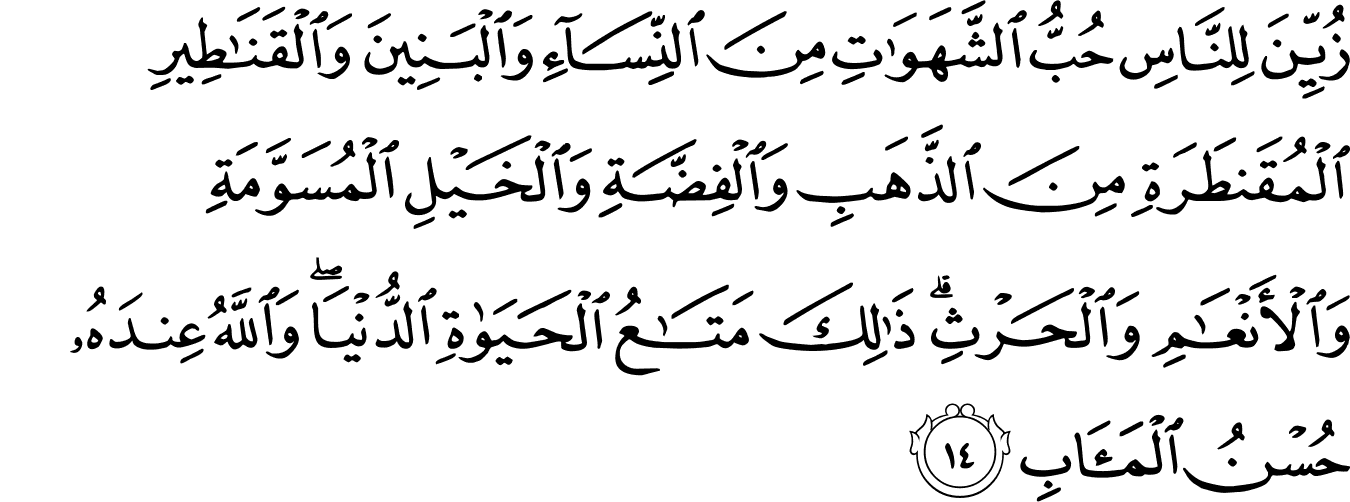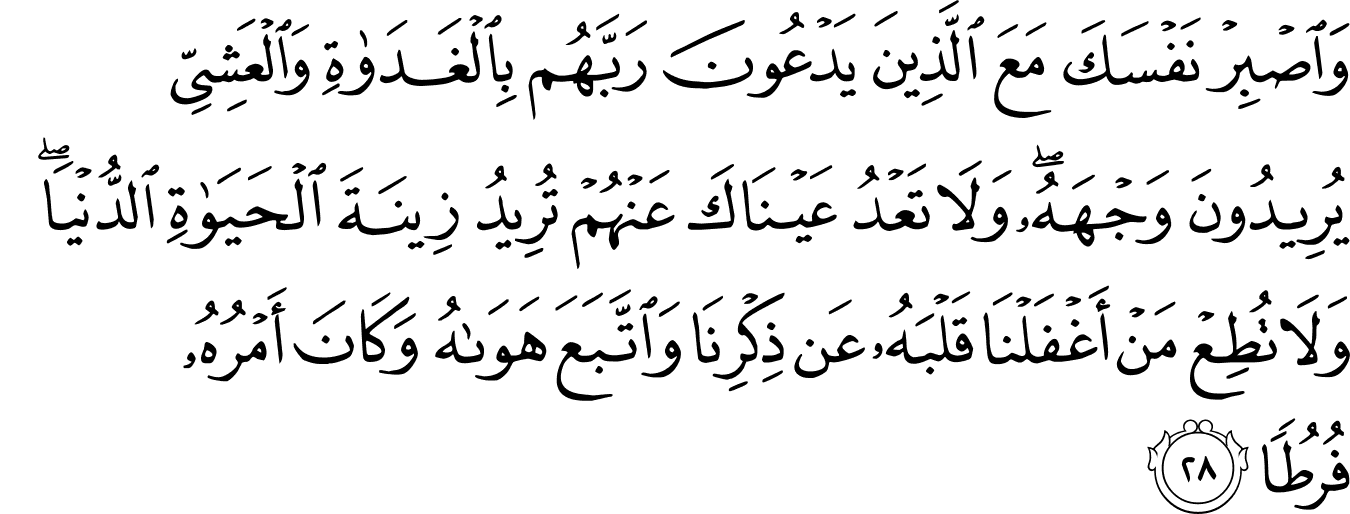#Islam
The Fluctuating Heart : Identifying And Managing Dips In Imaan
Published
By
Jakir Ahmed
For every crisis that comes to mind, we often have a plan in place. In the event of a fire, our response is quick and methodical. Escape routes are thoughtfully designed, fire extinguishers are easily accessible, and everyone knows to call the fire brigade to ensure help is on the way.
Similarly, when faced with the prospect of losing our jobs, we take practical steps such as saving funds to help us through the transition until we find another source of income. Our preparedness extends beyond mere reactions; it involves proactive measures like keeping smoke alarms in working order and managing our finances carefully.
Yet, when it comes to a crisis that affects our spiritual lives, we often find ourselves without a clear plan. A story shared by my teacher (حفظه الله) puts this imbalance into perspective. He told us about an elderly man who, despite losing his child, rebuked those who consoled him for his loss, because no one had shown the same concern when he had previously missed praying in the masjid (a sign of a “dead” heart).
Keep supporting MuslimMatters for the sake of Allah
Alhamdulillah, we're at over 850 supporters. Help us get to 900 supporters this month. All it takes is a small gift from a reader like you to keep us going, for just $2 / month.
The Prophet (SAW) has taught us the best of deeds are those that done consistently, even if they are small. Click here to support MuslimMatters with a monthly donation of $2 per month. Set it and collect blessings from Allah (swt) for the khayr you're supporting without thinking about it.
These fluctuations in imaan impact each of us at some point. The Prophet ﷺ highlighted the changeable nature of the heart when he said:
إنما القلب من تقلبه ، إنما مثل القلب كمثل ريشة معلقة في أصل شجرة يقلبها الريح ظهرا لبطن
“The heart (qalb) takes its name from its constant changes (taqallub). The likeness of the heart is that of a feather at the root of a tree, being turned over and over by the wind.”1Sunan Ibn Majah 88
He ﷺ also described the heart’s rapid changes in another way:
لَقلْبُ ابنِ آدمَ أشدُّ انْقلابًا من القِدْرِ إذا اسْتجْمعتْ غَلَيانًا
“The heart of the son of Adam changes more quickly than a pot of rapidly boiling water.”2Saheeh al-Jami’ 5147
What Is An “Imaan Dip”?
Imaan is something that fluctuates. Allah ﷻ mentions in surah al-Fath:
“It is He who sent down tranquillity into the hearts of the believers that they would increase in faith along with their [present] faith. And to Allah belong the soldiers of the heavens and the earth, and ever is Allah Knowing and Wise.” [Surah Al-Fath: 48;4]
In Adwa’ al-Bayaan, Shaykh Muhammad Ameen ash-Shanqeeti (رحمه الله) explains that this verse, along with many others in the Qur’an, clearly shows that imaan can both increase and decrease.
This is a topic that affects us all, as it can have a significant impact on our lives. This is an important topic for us to be aware of, as any one of us can be affected by this and it can derail our akhira. When addressing the tabi’een, Abdullah ibn Masud 





Abu ʿAbdillah al-Sunabihi once shared his experience of arriving in Madinah during the time of Abu Bakr al-Siddiq’s 




“[Who say], “Our Lord, let not our hearts deviate after You have guided us and grant us from Yourself mercy. Indeed, You are the Bestower.” [Surah ‘Ali-‘Imran: 3;8]
This is the same Abu Bakr 


So, what is a dip in imaan? It’s a phase we’ve all encountered at some point, so it’s relatable to many of us. It’s a period when your faith weakens after a time of strength. You may feel lazy after a period of productivity and enthusiasm for good deeds. The passion for doing acts of good may diminish, and the love for them may wane in your heart.
My teacher (حفظه الله) categorizes these dips in imaan into three levels:
- A significant dip in imaan where someone completely loses their way. نسأل الله السلامة والعافية – we ask Allah
for His Safety and Pardon from such a trial.
- A moderate dip in imaan where you may stray slightly from the right path but find your way back to good deeds. For instance, you may still be praying but struggling to find motivation.
- A minor dip in imaan, which is a common experience even for the best of us, but you recover quickly.
The Wisdom Behind A Dip In Imaan
The wisdom behind a dip in imaan is that it serves as a reminder to be grateful for it in the first place.
Allah ﷻ tells us in Surah Ibrahim:
“And [remember] when your Lord proclaimed, ‘If you are grateful, I will surely increase you [in favor]; but if you deny, indeed, My punishment is severe.'” [Surah Ibrahim: 14;7]
The blessing of imaan and experiencing its sweetness is more valuable than any treasure we can find in this world. We often forget that this faith is a gift from Allah
and not something we inherently deserve. As one of the pious predecessors, Ibrahim ibn Adham (رحمه الله), once said, “If the kings and their sons knew what we experience of pleasure and happiness in Islam, they would fight us for it with their swords.”7al-Zuhd al-Kabir lil-Bayhaqi 80
These dips also serve as a gentle nudge to stay vigilant and mindful of our imaan, and to continuously nourish it in the right ways.
Signs Of A Dip In Imaan
It’s crucial to recognize when our imaan is shifting. Abu Darda 
- Negligence in Acts of Worship
When someone is experiencing a dip in imaan, they may struggle to engage in and find motivation for acts of worship. This change can be diagnosed through a noticeable behaviour change—for example, someone who used to consistently pray the 12 raka’ahs of sunnan al-rawatib might now find it hard to do so. Similarly, prayers such as witr, duha, and qiyaam may disappear from their daily routine.
Even if a person continues to observe acts of worship, they may feel empty and soulless, lacking any true connection with Allah 

“Indeed, the hypocrites [think to] deceive Allah , but He is deceiving them. And when they stand for prayer, they stand lazily, showing [themselves to] the people and not remembering Allah except a little.“ [Surah An-Nisa: 4;142]
- Starting to Commit Sins
When imaan weakens, individuals may start to justify and rationalise their sins. This can be a gradual trap set by shaytaan. They might begin to think that this is just a minor sin, it’s acceptable or excusable. Excuses like “I’m going on Umrah soon, Allah will forgive me,” or “I can easily stop, this isn’t my usual behaviour ” may arise.
This mindset can lead down a path laden with difficulty. When a person justifies sins, they may continue committing them without remorse, failing to make tawbah. If they don’t break the cycle, they may become comfortable with sin – even committing them openly. Just as good deeds lead to more good, sins can also lead to more sins. The Prophet ﷺ described someone who openly commits sins:
“Everyone from my nation will be forgiven except those who sin in public. Among them is a man who commits an evil deed in the night that Allah has hidden for him, then in the morning he says: O people, I have committed this sin! His Lord had hidden it during the night, but in the morning he reveals what Allah has hidden.”9Saheeh al-Bukhari 6069, Saheeh Muslim 2990
This state of heedlessness can make it hard to distinguish between right and wrong. Abdullah ibn Mas’ud 
إِنَّ الْمُؤْمِنَ يَرَى ذُنُوبَهُ كَأَنَّهُ قَاعِدٌ تَحْتَ جَبَلٍ يَخَافُ أَنْ يَقَعَ عَلَيْهِ وَإِنَّ الْفَاجِرَ يَرَى ذُنُوبَهُ كَذُبَابٍ مَرَّ عَلَى أَنْفِهِ
“Verily, the believer views his sins as if he were sitting under a mountain, fearing it will fall upon him. The wicked views his sins as if they were a fly passing over his nose.”10Saheeh al-Bukhari 5949
- Awkwardness Towards Righteous Brothers and Sisters
Another sign of low imaan is avoiding believers known for their righteousness. You may find yourself withdrawing from them, not wanting to meet or respond to their messages. Instead, you may seek company that won’t question your actions. The Messenger of Allah ﷺ said, “No two people loved one another for the sake of Allah Almighty, or for Islam, then separated from one another but that it was due to a sin one of them committed.”11al-Adab al-Mufrad lil-Bukhari 401
Virtuous company has a transformative effect on our imaan. Hasan al-Basri (رحمه الله) emphasised the value of companionship:
إخواننا أحب إلينا من أهلينا وأولادنا، لأن أهلنا يذكروننا بالدنيا وإخواننا يذكروننا بالله والدار الآخرة
“Our brothers are more beloved to us than our family members and our children. For our families remind us of the dunya, while our brothers remind us of Allah and the abode of the akhirah.”12Ihya Ulum al-Din 2/176
- A Hardened Heart
In a crisis of imaan, one may find that the Qur’an no longer moves them. Allah ﷻ tells us in Surah at-Tawbah:
“And whenever a surah is revealed, there are among the hypocrites those who say, “Which of you has this increased faith?” As for those who believed, it has increased them in faith, while they are rejoicing.” [Surah At-Tawbah: 9;124]
Despite its descriptions of paradise, hellfire, commands, prohibitions, and lessons from the lives of nations that have gone, you may become easily bored with its message. You may find yourself closing the cover of your mushaf soon after opening it. Uthman ibn Affan 
Regardless of the strength of the reminder, it may not resonate. Whether at a circle of remembrance or a funeral, the heart may remain unmoved, even in the face of one’s own mortality. Allah ﷻ describes this hardened state in the Qur’an:
“Then your hearts became hardened after that, being like stones or even harder. For indeed, there are stones from which rivers burst forth, and there are some of them that split open and water comes out, and there are some of them that fall down for fear of Allah . And Allah is not unaware of what you do.” [Surah Al Baqarah: 2;74]
- No Care for the Affairs of the Muslims
When the wider ummah faces difficulties, a sign of low imaan may be a lack of sadness or even rejoicing over their hardships. RasulAllah ﷺ said, “The parable of the believers in their affection, mercy, and compassion for each other is that of a body. When any limb aches, the whole body reacts with sleeplessness and fever.”14Saheeh al-Bukhari 6011, Saheeh Muslim 2586
If this is how believers are meant to feel, then the absence of concern for the ummah may indicate a deeper issue. For instance, consider the current plight of our beloved brothers and sisters in Gaza. What have you been doing? Reflect on your own feelings and reactions to understand the state of your imaan.
- A Focus on the Luxuries of the Dunya


This switch can be concerning, especially if the person previously showed little interest in material excess. They may start seeking the finest clothes, the most expensive homes, and the most sophisticated foods. This attachment to the dunya can also be identified in the envy of others’ wealth. A person may feel they aren’t receiving their “fair” share and wish for the possessions of their fellow believers. This type of envy is dangerous, as the Prophet ﷺ said, “imaan and envy do not co-exist within a believing servant.”16Sunan al-Nasa’i 3109
- Wasting Time
Another sign of a dip in imaan is an increase in procrastination. This might manifest as wishful thinking without much actual progress. Our deen emphasises action. Allah ﷻ tells us in Ali ‘Imran:
“And hasten to forgiveness from your Lord and a garden as wide as the heavens and earth, prepared for the righteous.” [Surah ‘Ali-‘Imran: 3;133]
He also describes the best of His Servants, the Prophets and Messengers 
“So We responded to him, and We gave to him John, and amended for him his wife. Indeed, they used to hasten to good deeds and supplicate Us in hope and fear, and they were to Us humbly submissive.” [Surah Al-Anbiya: 21;90]
When Imam al-Bukhari (رحمه الله) had an idea, he would get out of bed, light his lamp, and write it down. The great scholars of the past made full use of their time and advised others to do the same.
Ibn al-Jawzi (رحمه الله) warned, “Beware of procrastination, for it is the most important weapon of Iblis.”17Sayd al-Khatir pg. 206
Ibn al-Qayyim (رحمه الله) echoed this sentiment: “How often does a virtuous deed run towards you only to be stopped at the door by the guards of ‘perhaps’, ‘soon’ and ‘maybe’.”18al-Fawa’id pg. 63
Ibrahim at-Taymi (رحمه الله) said, “I imagined myself in the Garden eating from its fruit, embracing its virgins and enjoying its bliss, and then I asked myself, ‘My self, what do you desire?’ It replied, ‘I want to return to the world to do more of the deeds by which I obtained this.’ Then I imagined myself in Hell burning with its fire, gulping down its hot water and eating its bitter fruit. I asked myself, ‘What do you desire?’ It answered, ‘To return to the world and perform actions by which I can deliver myself from this.’ So I told myself, “Myself, you have what you wish, so act!”19Al-Takhwif Min Al-Nar (47)
Causes of a Dip in Imaan
It is also pivotal to be able to recognize and understand why we may be undergoing a dip in imaan. These, like the above signs of a dip, are just amongst a few mentioned by my teacher ( حفظه الله ).
- Insincerity
Continuously questioning our intentions is crucial. Would you still perform good deeds if no one knew about them, or if they weren’t well-received? Are you more concerned with people’s praise than with Allah’s 

One of our pious predecessors, Bishr ibn al-Harith (رحمه الله), said:
لا يجد حلاوة الآخِرة رجُلٌ يُحٍبُّ أن يعرفهُ النّاس
“It is impossible for someone to taste the sweetness of the akhira, if they desire recognition from people.”20Hilyat al-Awliya’ 8/343
Imam ad-Dhahabi also relayed that Bishr advised us to “not act in order to be mentioned, hide your good deeds the way you hide your bad deeds.”21Siyar A’lam an-Nubala 10/476
The great scholar Fudayl ibn Iyad (رحمه الله) echoed this sentiment: “If you can be unknown, do so. It doesn’t matter if you are not known and it doesn’t matter if you are not praised. It doesn’t matter if you are blameworthy according to people if you are praiseworthy with Allah, Mighty and Majestic.”22Hilyat al-Awliya’ 8/88
- Weakness in Islamic Knowledge & Not Acting upon It
A dip in imaan may stem from a lack of understanding of Shaytaan’s deceptions. Shaytaan has been our sworn enemy since the beginning of time, and he seeks to lead us astray in any way he can. His deception may even come in the form of apparent good, such as reciting Qur’an late at night but missing Fajr as a result.
Similarly, the knowledge we acquire can be detrimental if we fail to apply it to ourselves. Imam ad-Dhahabi (رحمه الله) stated, “Whoever seeks knowledge in order to act by it, his knowledge humbles him and causes him to weep at himself. But whoever learns knowledge just to teach, give fatwas, or to brag or to show-off, becomes foolish, arrogant, argumentative, perishes in his vanity, and is despised by others.”23Siyar A’lam an-Nubala 18/192
It’s common for someone to become overly confident in their knowledge, even if they have only scratched the surface. True knowledge is implanted through constant repetition and revision to see what we have understood and implemented, and to identify which things we’ve learned but not yet lived.
No matter how far you’ve gotten on your journey, you will never reach a stage where a reminder is beyond you. This is reflected throughout the Qur’an. Allah ﷻ repeatedly mentions Jannah and its fruits. If we were people who would take heed from hearing something just once, why is Jannah mentioned so many times?
- Being Consumed with Work, Marriage, and Life
Allah ﷻ mentions in the Qur’an:
“And know that your properties and your children are but a trial and that Allah has with Him a great reward.” [Surah Al-Anfal: 8;28]
Another verse tells us:
“Beautified for people is the love of that which they desire – of women and sons, heaped-up sums of gold and silver, fine branded horses, and cattle and tilled land. That is the enjoyment of worldly life, but Allah has with Him the best return.” [Surah ‘Ali-‘Imran: 3;14]
As people take on new responsibilities like work and marriage, it’s natural for areas of worship to take a hit. While marriage and children are essential and encouraged, they should not become excuses to neglect your spiritual well-being. For example, when you have children – it is admirable and necessary to provide for them. Perhaps, you want to leave behind for them wealth in order to make life easier for them once you depart from this world. Does that mean, however, that in order to achieve that wealth, you misprioritize and let go of your prayer? Or that you stop reciting the Qur’an?
- Keeping Bad Company
Sometimes, the cause of a dip in imaan can be traced back to the company we keep. The Qur’an reminds us that most of our companions may lead us astray. Allah ﷻ tells us in az-Zukhruf:
“Close friends, that Day, will be enemies to each other, except for the righteous.” [Surah Az-Zukhruf: 43;67]
In rare instances, beneficial friendships are found, so we should strive to maintain such relationships when we identify them.
Allah ﷻ tells us in Surah al-Kahf:
وَٱصْبِرْ نَفْسَكَ مَعَ ٱلَّذِينَ يَدْعُونَ رَبَّهُم بِٱلْغَدَوٰةِ وَٱلْعَشِىِّ يُرِيدُونَ وَجْهَهُۥ ۖ وَلَا تَعْدُ عَيْنَاكَ عَنْهُمْ تُرِيدُ زِينَةَ ٱلْحَيَوٰةِ ٱلدُّنْيَا ۖ وَلَا تُطِعْ مَنْ أَغْفَلْنَا قَلْبَهُۥ عَن ذِكْرِنَا وَٱتَّبَعَ هَوَىٰهُ وَكَانَ أَمْرُهُۥ فُرُطًۭا
“And keep yourself patient [by being] with those who call upon their Lord in the morning and the evening, seeking His countenance. And let not your eyes pass beyond them, desiring adornments of the worldly life, and do not obey one whose heart We have made heedless of Our remembrance and who follows his desire and whose affair is ever [in] neglect.” [Surah Al-Kahf: 18;28]
Imam Ahmad (رحمه الله) explained the value of righteous company, asking, “How will someone discover their flaws without a friend to correct them or show them aversion when necessary?” 24Al-Adaab ash-Shar’iyyah, Ibn Muflih 1/229
Bad company may not only ignore your struggles in deen, but also lead you toward actions that harm your faith.
- Belittling the Impact of Sins
Neglecting sins can lead to the depletion of Allah’s 
My teacher (حفظه الله) always emphasizes to us that “there has never been anything to remove Allah’s blessings like sinning. There has never been anything to keep Allah’s blessings like obedience and there has never been anything to increase Allah’s blessings like gratitude. Understand this, as whatever you have will flourish, be it marriage/work, etc. ”
There is no greater blessing bestowed upon the creation than the gift of imaan – is it really surprising that imaan is removed from our hearts as a result of our sins?
- Questioning the Intentions of Others
Our spiritual state can suffer if we become overly focused on questioning others’ intentions. Instead of scrutinizing others, we should start by looking at ourselves. By constantly thinking the worst of fellow believers, we risk distancing ourselves from Allah 
The Muhaddith, Ibn Hibban (رحمه الله), wrote that “it is obligatory upon an intelligent person to look to his own safety by not hunting for people’s faults and spying on them; instead, he should busy himself with rectifying his own faults. Whoever concentrates on his own faults will bring relief to his body and will not exhaust and trouble his heart. This is because each time a person finds a fault in himself, it will be easier for him to bear the same fault he sees in his Muslim brother.
However, someone who is engrossed with the faults of others rather than his own will find his heart becoming blind and his body, weary because he will have found the excuse to ignore his own failings.”26Rawdatul ‘Uqalaa, pg. 125
- Ignorance of the Obstacles on the Journey
Another reason for a dip in imaan may be the lack of awareness that the path toward Allah 

Our beloved Rasul ﷺ experienced hunger, loss of wealth, and the death of loved ones, including his wife, parents, and children. He faced rejection from his family and community, enduring all of this for the sake of Allah 

The Prophet ﷺ also said, “How wonderful the affair of the believer is! Indeed, all of his affairs are good for him. This is for no one but the believer. If something good happens to him, he is grateful to Allah, which is good for him. And if something bad happens to him, he has patience, which is good for him.”28Saheeh Muslim 2999 This is the fundamental difference between the life of the believer and the disbeliever. Both experience ease and difficulty, but the believer’s response draws them closer to their Lord.
Shaykh al-Islam, Ibn Taymiyyah (رحمه الله) noted, “If tribulations become hard for the righteous believer, they’re a means for him reaching a loftier rank and a greater reward.” 29Al-Istiqaamah 2/260
His student, Ibn al-Qayyim (رحمه الله), explained that the “trials that befall a believer are like medication that remove disease from his body which, if left inside, would destroy him or diminish his reward and rank.”30Ighaathatul lahfaan, 2/935
The Cure
- Recognizing that Imaan is a Gift From Allah
First, we need to understand that our imaan is a gift from Allah 
Once we grasp this, we realize that the most important action we can take is to turn to Allah 

اللهم اجعلني لك شاكرًا، لك ذاكرًا، لك راهبًا، لك مِطواعًا، إليك مُخْبِتًا، أو مُنِيبا، رب تقبَّل توبتي، واغسل حَوْبتي، وأجب دعوتي، وثبِّت حُجَّتي، واهدِ قلبي، وسدِّد لساني، واسْلُلْ سَخِيمةَ قلبي
“O Allah, make me grateful to You, remembering You, fearful of You, obedient to You, and humble to You or returning to You in repentance. O Lord, accept my repentance, wash away my sins, answer my supplication, establish my proof (words), guide my heart, make my tongue speak the truth, and take resentment (hatred) away from my heart.”33Sunan Abi Dawud 1510
اللَّهُمَّ اجْعَلْ فِي قَلْبِي نُورًا وَفِي لِسَانِي نُورًا وَاجْعَلْ فِي سَمْعِي نُورًا وَاجْعَلْ فِي بَصَرِي نُورًا وَاجْعَلْ مِنْ خَلْفِي نُورًا وَمِنْ أَمَامِي نُورًا وَاجْعَلْ مِنْ فَوْقِي نُورًا وَمِنْ تَحْتِي نُورًا اللَّهُمَّ أَعْطِنِي نُورً
“O Allah, place light in my heart and light on my tongue. Place light in my hearing and light in my seeing. Place light behind me and light in front of me. Place light above me and light below me. O Allah, grant me light!”34Saheeh al-Bukhari 6316, Saheeh Muslim 763
رَبَّنَا ٱغْفِرْ لَنَا وَلِإِخْوَٰنِنَا ٱلَّذِينَ سَبَقُونَا بِٱلْإِيمَـٰنِ وَلَا تَجْعَلْ فِى قُلُوبِنَا غِلًّۭا لِّلَّذِينَ ءَامَنُوا۟ رَبَّنَآ إِنَّكَ رَءُوفٌۭ رَّحِيمٌ
“Our Lord, forgive us and our brothers who preceded us in faith and put not in our hearts [any] resentment towards those who have believed. Our Lord, indeed You are Kind and Merciful.”35Qur’an 59:10
رَبَّنَا لَا تُزِغْ قُلُوبَنَا بَعْدَ إِذْ هَدَيْتَنَا وَهَبْ لَنَا مِن لَّدُنكَ رَحْمَةً ۚ إِنَّكَ أَنتَ ٱلْوَهَّابُ
“Our Lord! Make not our hearts to deviate after You have guided us, and grant us mercy; Surely You are the Giver.”36Qur’an 3:8
يَا مُقَلِّبَ الْقُلُوبِ ثَبِّتْ قَلْبِي عَلَى دِينِكَ
“O Turner of the hearts, make my heart adhere firmly to Your religion.”37Sunan at-Tirmidhi 2140
اللهُمَّ إِنِّي أَسْأَلُكَ إِيمَانًا لاَ يَرْتَدُّ، وَنَعِيمًا لاَ يَنْفَدُ، وَمُرَافَقَةَ مُحَمَّدٍ صَلى الله عَلَيه وسَلم فِي أَعْلَى جَنَّةِ الْخُلْدِ
“O Allah, I ask you for such Imaan that does not waver and tranquility that does not diminish and the companionship of our Prophet ﷺ in the highest stations of the everlasting Jannah.”38Saheeh Ibn Hibban 1970
- Avoiding Causes
After seeking Allah’s 
- Have an Emergency Imaan Toolkit
Despite our best efforts, there may be times when we experience dips in imaan. In such situations, having a personalized resource of imaan boosters can be helpful. This could include written quotes, stories, verses from the Qur’an, or reminders that resonate with you. Compile these resources and keep them handy for when you need a boost.
Here are some examples of the reminders I find beneficial:
“The Goodly Life” – Sheikh Muhammad Mukhtar Ash-Shinqitee [HD 720p]
يتوسل إلى الله بطريقة عجيبة، روووعة || الشيخ سعيد الكملي
‘Yawm al Mazeed’ – Emotional khutbah [Eng subtitles]
Sheikh Saleh Al Maghamsi: Good deeds for the sake of Allah
EMOTIONAL STORY – ‘AHMED THE REPENTER’ – BILAL ASSAD
- Imaani Circles of Remembrance
Remember, imaan boosters are temporary measures. It’s essential to have regular practices that nurture your imaan. This could involve informal circles with friends discussing topics such as sincerity and gratitude or structured gatherings.
The Messenger of Allah ﷺ said, “When you pass by the meadows of Jannah indulge freely in them!” The sahabah asked what are these gardens of paradise? He ﷺ replied “Circles of remembrance.”39Sunan al-Tirmidhi 3510
Working on our imaan is a recurring theme among the pious predecessors. Ameerul Mu’mineen, Umar ibn al-Khattab 

Allah ﷻ says:
“Has the time not come for those who have believed that their hearts should become humbly submissive at the remembrance of Allah and what has come down of the truth? And let them not be like those who were given the Scripture before, and a long period passed over them, so their hearts hardened; and many of them are defiantly disobedient.” [Surah Al-Hadid: 57;16]
- Tawbah
Ibn al-Qayyim (رحمه الله) mentions in al-Fawa’id:
والقلبُ يمرضُ كما يمرضُ البدنُ وشِفاؤه في التّوبة
“The heart becomes sick just as the body does, and its healing lies in tawbah.”42al-Fawa’id, pg. 98
Shaykh al-Islam, Ibn Taymiyyah (رحمه الله) stated, “Whoever notices that his chest is not opened and he does not experience the sweetness of imaan and the light of guidance, then he should increase in tawbah and seeking forgiveness.”43Majmu al-Fatawa 5/26
- Good Deeds
Ibn al-Qayyim (رحمه الله) elaborates on healing a sick heart:
والقلبُ يمرضُ كما يمرضُ البدنُ وشِفاؤه في التّوبة والحمية، ويصدأُ كما تصدأ المرآة وجلاؤه بالذِّكر
“The heart becomes sick just as the body does, and its healing lies in tawbah and fostering enthusiasm (for goodness). The heart also rusts just like the mirror rusts, and its polish lies in making dhikr of Allah.”44al-Fawa’id, pg. 98
Good deeds are an effective way to increase our imaan and open the door to even more good. Ibn Rajab (رحمه الله) said, “If a person is troubled by his wrongdoing and performs righteous actions to make up for them, then this is a sign of his imaan”45Fath al-Bari 3/28
Allah ﷻ describes believers as those who:
وَيَدْرَءُونَ بِالْحَسَنَةِ السَّيِّئَةَ
“Push away evil with that which is good.” [Surah Al Qasas: 28;54]
The best believers consistently strive for righteous actions, which can take many forms. Diversify the good you do, from reciting the Qur’an to helping those in need. These acts replenish our hearts with light. This is why we should look to the example of Abu Bakr 
When we struggle with our imaan, some acts of worship may become more challenging, such as the night prayer. Scholars of the past have encouraged focusing on adkhar, especially the weighty ones we should recite throughout the day, such as:
لا إله إلا الله وحده لا شريك له له الملك وله الحمد وهو على كل شيء قدير
“There is no god but Allah; He has no partner; to Him belongs the Sovereignty and Praise, and He is Able to do all things.”
Remaining committed to these words of remembrance and being among those who frequently remember Allah 
Allah explains the impact of dhikr on the heart in ar-Ra’d:
“Those who have believed and whose hearts are assured by the remembrance of Allah. Unquestionably, by the remembrance of Allah hearts are assured.“ [Surah Ar-Ra’d: 13;28]
A man once asked Hasan al-Basri (رحمه الله) how to increase imaan. He said, “Ya Abu Sa’eed, I am complaining to you of the hardness of my heart.” Hasan replied, “Soften it with dhikr.”47Ar-Riqqah Wal Buka’, Ibn Abi Dunya pg. 62
- Righteous Companionship


Ibn Mas’ud 
- Patience
Patience and perseverance are vital to recovering from an imaan dip. Progress may be slow, but consistently fortifying your imaan will bring relief. Remember that pursuing Allah’s 
Ameerul Mu’mineen, Umar ibn al-Khattab 
وَجَدْنَا خَيْرَ عَيْشِنَا بِالصَّبْرِ
“We considered the best part of our lives to be that in which there was patience.”49Kitab az-Zuhd, Ahmad ibn Hanbal 612
This outlook aligns with Allah’s 
“O you who have believed, seek help through patience and prayer. Indeed, Allah is with the patient.” [Surah Al-Baqarah: 2;153]
Conclusion
Our journey with imaan is a deeply personal one, with moments of strength and periods of weakness. Understanding the nature of these fluctuations is essential for nurturing and preserving our imaan. By recognizing the causes of dips and actively seeking to avoid them, we can create a path toward spiritual resilience.
Remember that every moment presents an opportunity for growth, and every difficulty serves as a chance to draw closer to Allah ﷻ. We should strive to embrace these challenges and use them as stepping stones toward a deeper, more meaningful connection with our Creator.
May Allah 
اَللّٰهُمَّ زَيِّنَّا بِزِيْنَةِ الْإِيْمَانِ ، وَاجْعَلْنَا هُدَاةً مُّهْتَدِيْنَ
O Allah, adorn us with the beauty of imaan and make us those who guide others and are guided themselves.
Related:
– [Podcast] Man 2 Man: How Social Media Is Killing Your Imaan
Keep supporting MuslimMatters for the sake of Allah
Alhamdulillah, we're at over 850 supporters. Help us get to 900 supporters this month. All it takes is a small gift from a reader like you to keep us going, for just $2 / month.
The Prophet (SAW) has taught us the best of deeds are those that done consistently, even if they are small. Click here to support MuslimMatters with a monthly donation of $2 per month. Set it and collect blessings from Allah (swt) for the khayr you're supporting without thinking about it.
Jakir Ahmed is currently a medical student at University College London. He is active in university based projects, previously serving as a Head brother at University College London Islamic society and is currently serving as a Vice President in the Federation of Student Islamic Societies (FOSIS). He is passionate about community engagement, self-development and reading. You can find some of his book reviews at www.getrevue.co/JakirReads


Cultivating A Lifelong Habit Of Dua In Children

When to Walk Away from Toxic Friends | Night 9 with the Qur’an

My First Ramadan As A Convert: The Lengths Small Acts of Kindness Can Go

What Islam Actually Says About NonMuslim Friends | Night 8 with the Qur’an

Ramadan, Disability, And Emergency Preparedness: How The Month Of Mercy Can Prepare Us Before Communal Calamity

30 Nights with the Qur’an: A Ramadan Series for Muslim Teens

How to Make this Ramadan Epic | Shaykh Muhammad Alshareef

[Podcast] Guardians of the Tradition: Muslim Women & Islamic Education | Anse Tamara Gray

Who Am I Really? What Surat Al-‘Asr Teaches Muslim Teens About Identity | Night 1 with the Qur’an

Starting Shaban, Train Yourself To Head Into Ramadan Without Malice

When to Walk Away from Toxic Friends | Night 9 with the Qur’an

What Islam Actually Says About NonMuslim Friends | Night 8 with the Qur’an

Week 1 in Review: Is Your Teen Actually Changing? | Night 7 with the Qur’an

Why Your Teen Wants to Change Their Muslim Name | Night 6 with the Qur’an

The Comparison Trap | Night 5 with the Qur’an
MuslimMatters NewsLetter in Your Inbox
Sign up below to get started
Trending
-
#Islam1 week ago
30 Nights with the Qur’an: A Ramadan Series for Muslim Teens
-
#Current Affairs1 month ago
[Podcast] Should Muslims Ally with Conservatives or Progressives? | Imam Dawud Walid
-
#Islam4 weeks ago
How to Make this Ramadan Epic | Shaykh Muhammad Alshareef
-
#Life1 month ago
[Podcast] The Parts of Being an Imam They Don’t Warn You About | Sh Mohammad Elshinawy
























Umm Zaynab
August 3, 2024 at 5:20 AM
Mashallah this is such a beneficial and beautiful article. Jazakallah Khair to the author.